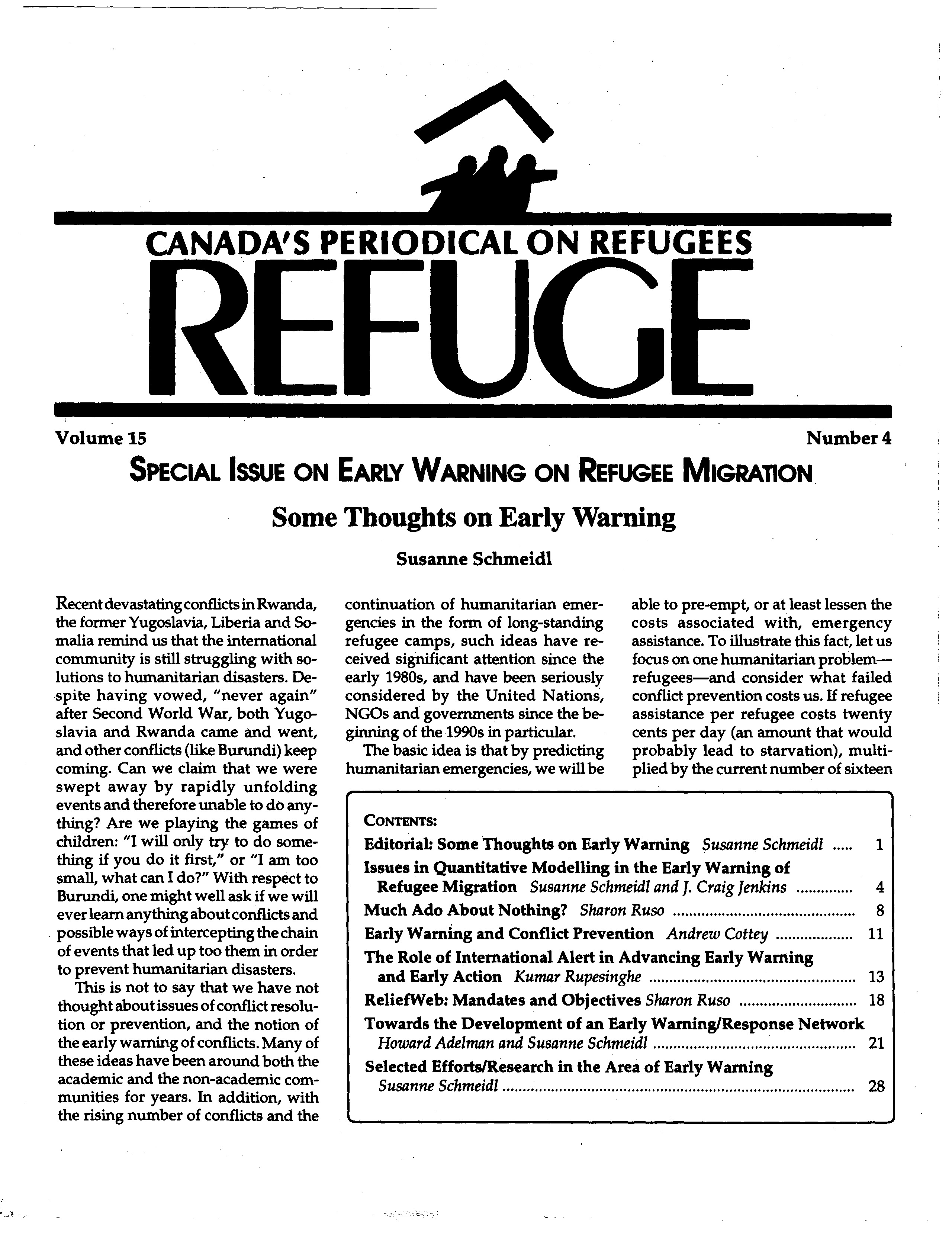Towards the Development of an Early Warning/Response Network
DOI:
https://doi.org/10.25071/1920-7336.21882Keywords:
early warning, early warning network, humanitarian crisis, NGO, transparency, EWNETAbstract
This article outlines a proposal put forth by the Prevention/Early Warning Unit at the Centrefor Refugee Studies, York University. The article describes the problems with early warning and how an early warning network (EWNET) can address these existing difficulties. This EWNET is described as an academic- NGO-policy consortium that over a period of a few years will become self-sufficient through the involvement of business. Utilizing the Internet, EWNET will collect information from all over the world, analyze and disseminate such information. The link to policy makers and the importance of properly communicating alerts are discussed. While a central management team oversees EWNET, there are several units working on administration, sales and research. Furthermore, the research unit is broken down into indicator, communication, response and area study research; the latter being linked to twenty crises area nodes. This structure assures that EWNET will comprise a broad resource network as well as the links necessary for sending uniform early warning signals.Metrics
Downloads
Published
How to Cite
Issue
Section
License
Copyright (c) 1996 Howard Adelman, Susanne Schmeidl

This work is licensed under a Creative Commons Attribution-NonCommercial 4.0 International License.
Refuge authors retain the copyright over their work, and license it to the general public under the Creative Commons Attribution-Non Commercial License International (CC BY-NC 4.0). This license allows for non-commercial use, reproduction and adaption of the material in any medium or format, with proper attribution. For general information on Creative Commons licences, visit the Creative Commons site. For the CC BY-NC 4.0 license, review the human readable summary.







